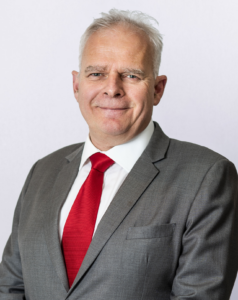The road to net zero… Some inroads being made
1 April 2023

A version of this article was first published in the April 2023 edition of FA News.
Climate change is a generational and global challenge that will have profound affects over the coming decades.
The drive for net zero, and to avoid the worst effects of climate change, will also require wholesale changes in the global economy. In Africa, where the risks from climate change are most acute, the insurance industry has a leading role to play in accelerating the transition to net zero, but before it can do that, it will need to change.
Taking the lead on net zero
It is incumbent on African insurers to take the lead on net zero, as so far, governments have been relatively slow to encourage any climate change initiatives, such as a move away from fossil fuels and towards more climate positive energy production. In South Africa, the President has proposed initiatives to encourage private power producers to move in this direction, but this has come in for criticism from those who benefit from existing power production methods.
Governments can also make it difficult to even mitigate against the worst effects of climate change. Unfortunately, local and municipal governments are failing to improve drainage facilities, meaning that they are continuously blocked and fail to provide relief from heavy rains.
None of this amounts to an excuse for inaction however, and Governments around the world have been working with insurers to see what the industry can do to help the transition. An area where this is starting to bear fruit is forestry, as could be seen at the recent COP27 climate conference.
The crucial role insurers play
During the conference, world leaders announced a new deal on forestry, the Forest and Climate Leaders’ Partnership (FCLP), which aims to halt and reverse deforestation, while supporting rural economies through sustainable development. All members have committed to supporting the FCLP’s key action areas, which include shifting the private finance system and strengthening and scaling carbon markets for forests.
The FCLP highlights the crucial role that insurers will have to play in supporting more sustainable economies and providing stability for forestry businesses, so that they can receive more investment and underpin an effective carbon market. As the World Economic Forum has pointed out, there is a huge opportunity for African businesses if insurers can help them unlock the investment they need to develop sustainable forestry businesses.
Making the most of this opportunity demands that insurers are able to quantify and understand the risks inherent to forestry businesses. They will need to gain a better understanding of the challenges facing these businesses, and especially of the risks posed by climate change. This means getting access to more and better quality data – insurers should be looking at the cutting edge of fire, storm and wind modelling. Tools such as fire and wind scar mapping can allow insurers to generate independent data that can underpin their underwriting.
Insurers will then need to utilise this data and be on hand to offer clients the latest expertise on forest management techniques, as well as to help clients access new and innovative solutions.
Making this work
A key part of making this investment work, so that it supports business and reduces emissions, will be embracing new technologies, such as parametrics. This ensures that customers are paid automatically in the event of a catastrophe, something which is especially important for businesses in remote locations, as loss adjustment is more time consuming. Many nations in Africa are already taking action to support these developments; the South African Climate Change Bill will enable faster compensation in the event of losses.
Forestry and improved forestry management offers an opportunity to create local jobs in Africa, that will help the continent meet its climate targets. Insurers are increasingly alive to the opportunities in this area, and the need to provide investment and innovative solutions.
You can read the original article on the FA News website:

Philippe Bara
Head of Energy Portfolio, Specialty MGA

Our Expertise
Our energy team can deliver solutions to achieve the best result for you and your client, from the smallest local operators to the largest global conglomerates.
Find out more about how we can help you.
Capacity without boundaries
